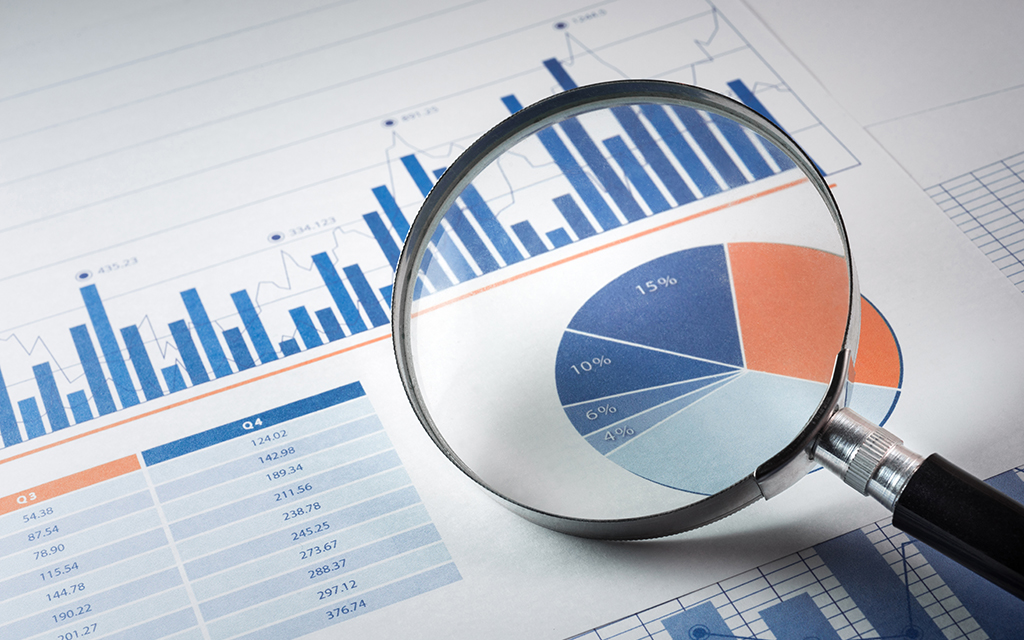Office of Admissions


When you graduate in less than two years with your online master’s degree in data science from Utica University, you’ll have earned the skills to analyze data, gain valuable insights, and develop innovative solutions in a variety of fields.
2 years
Duration
$830
Cost per Credit
30
Credit Hours
100%
Online, Customizable Coursework
Utica’s 30-credit, 100% online master’s degree in data science master’s program will prepare you to influence strategy and policy-making across organizations and industries. You’ll also learn to evaluate data science regarding ethics, social responsibility, and personal bias. This comprehensive curriculum helps Utica’s program stand out among other New York data science master’s programs.
With small class sizes, project-based coursework, and no residency requirement, our data science degree gives you the personal attention and flexibility to meet your educational goals.
Our program was ranked in the top 30 online Data Science programs in 2022 by Data Science Degree Programs Guide.
Choose the general track or one of three specializations in the data science master’s program. Each will provide you with the most up-to-date skills and expertise to hit the ground running in the industry segment of your choice.
Learn how to use demographic trends, census information, and other databases to predict market and workforce developments and risks.
Become familiar with state-of-the-art cybersecurity and computer forensic practices and learn how to apply your knowledge of data science to them.
Learn More About Our Data Science Specializations
The Bureau of Labor Statistics predicts that data science roles will grow 36% from 2023-2033, much faster than the average for all occupations. In 2024, the median salary for a data scientist was $112,590, with the highest 10 percent earning more than $194,410.2
It’s no wonder this combination of skills is in such high and growing demand. You’ll have the skills to translate data into:
There are many applications for an M.S. in Data Science across the business, nonprofit, and governmental sectors.
► #3 JOB IN AMERICA
Data scientist ranked #3 job in America for opportunity, salary, job satisfaction1
► 36% JOB GROWTH
36% projected growth in job opportunities in the United States by 20332

Data scientists develop algorithms (sets of instructions that tell computers what to do) and models to support programs for machine learning. 2

Management analysts, often called management consultants, recommend ways to improve an organization’s efficiency. They advise managers on how to make organizations more profitable through reduced costs and increased revenues.3

Cybersecurity analysts keep a watchful eye on the traffic of sensitive data. Whether in a corporate or governmental setting, these data guards analyze incoming and outgoing data to ensure systems are secure and running smoothly.4

Market research analysts dive into the potential market for new products and services. Their findings help companies reduce risk and enter the market with confidence.5

Putting data to work in service of public well-being, public health analysts dig into available research or gather their own data in order to inform policy, health care, or other high-impact social programs.6

Computer and information research scientists help address business challenges by translating data into a usable, contextual resource for decision-makers.7
Please note: Online programs offered by Utica University are available exclusively for residents of New York state.
Sources:
1. 50 Best Jobs in America. (n.d.). Glassdoor. https://www.glassdoor.com/List/Best-Jobs-in-America-LST_KQ0,20.htm
2. U.S. Bureau of Labor Statistics Occupational Outlook Handbook. https://www.bls.gov/ooh/math/data-scientists.htm
3. Management Analysts. https://www.bls.gov/ooh/business-and-financial/management-analysts.htm
4. Information Security Analysts. https://www.bls.gov/ooh/computer-and-information-technology/information-security-analysts.htm
5. Market Research Analysts. https://www.bls.gov/ooh/business-and-financial/market-research-analysts.htm
6. Public Health Analyst Salaries. https://www.glassdoor.com/Salaries/public-health-analyst-salary-SRCH_KO0,21.htm
7. Computer and Information Research Scientists. https://www.bls.gov/ooh/computer-and-information-technology/computer-and-information-research-scientists.htm
In this 30-credit-hour program, you’ll complete 15 credit hours of data science online courses before finishing the program with 12 credit hours in an area(s) of your choosing, including two focus areas:
Then, choose between a three-credit capstone or thesis project to demonstrate your new expertise in a hands-on practicum or research project. The program is designed to be completed in as few as five continuous semesters of study, or about two years.
Applying to our online master’s in data science program is straightforward, with no GRE or GMAT required. You’ll just need to submit the following:
Transfer credit is awarded for courses taken at a regionally accredited college that are equivalent to those taught at Utica University and you’ve received a grade of “B” or better. Note that we require official transcripts from all colleges you’ve attended, as well as a transcript showing degree awarded.
Shortly after you receive your letter of admission, you will receive an evaluation of your transfer credits from the Registrar’s Office. If you want to review possible credit eligibility ahead of time, use TES®.
International Credential Evaluation of transcripts showing equivalency to a U.S. bachelor’s degree with minimum GPA of 3.0 is required for this program.
If English is not your first language, submit your test scores from either the TOEFL or IELTS.
Utica requires a TOEFL score of 550 written, 213 computer-based, or 79 internet-based. Utica requires a IELTS score of 6.0.
Get StartedThis 30-credit program costs $830 per credit hour. Utica University is dedicated to making an advanced education accessible and affordable. Learn more about financial aid, including grants, student loans, and other options, on the Financial Aid tab of our Graduate Admissions page.
Learn moreChoose electives that fit your career goals or one of our specializations in the data science master’s program. Each will provide you with the most up-to-date skills and expertise to hit the ground running in the industry segment of your choice.

By providing you with a solid foundation in business theory and practice as well as data science, the online Business Analytics specialization of Utica University’s Master of Science in Data Science teaches you how to use demographic trends, census information, and other databases to predict market and workforce developments — as well as risk.
Work alongside a faculty of data science practitioners with decades of experience, and benefit from a 100-percent online program that fits your personal and professional life.
Become an invaluable asset to any operation with the skills to combine data management, analysis, and business fundamentals to give high-level leadership the information they need to make decisions.
You will complete this specialization ready to apply your data science learning to a variety of business management roles, from Business Analyst to Data Scientist. This specialization is designed for those with aspirations to rise to a C-Suite position.
CAREER SPOTLIGHT: BUSINESS ANALYST
As a business analyst, you would act as a facilitator in your organization, making internal departments more efficient by interpreting data and offering informed suggestions for change. On average, business analysts earn an annual income of $59,466.1
CAREER SPOTLIGHT: CHIEF EXECUTIVE OFFICER (CEO)
While the specific tasks of a CEO vary depending on what organization they are leading, they are usually responsible for formulating a strategic set of plans to address the direction of a company. On average, CEOs earn an average annual income of $158,967.2
The Business Analytics specialization features five courses that extend over 12 credit hours. Learn about corporate financial analysis, understand the application of accounting and finance concepts as they apply to financial data, deepen your understanding of the value chain, and more.
Explore economic forces and how they relate to the profitability and growth of a firm — as well as to economic thinking. You’ll examine topics including principles of microeconomics and how they apply to managerial decision-making.
Cover strategy and analysis of the value chain, macroeconomic issues in business, monetary theory and financial institutions, and financial statement analysis.

28% Job Growth by 20261
Through the online Cybersecurity specialization of Utica University’s Master of Science in Data Science, you will become familiar with state-of-the-art cybersecurity and computer forensic practices and learn how to apply your knowledge of data science to them.
As a student in this specialization, you will work alongside a faculty of data science practitioners with decades of experience and benefit from a 100% online program that fits your personal and professional life.
By the time you graduate, you will be a valuable asset to companies and organizations with a need to safeguard their systems.
The Cybersecurity specialization is intended for students who want to conduct data science in the applied field of data security. It prepares you for a variety of careers in this booming field.
CAREER SPOTLIGHT: INFORMATION SECURITY ANALYST
As an information security analyst, you would be responsible for finding security threats and other vulnerabilities — as well as implementing security principles while following strict privacy policies. Information security analysts have an average annual income of $71,077.1
CAREER SPOTLIGHT: CYBERSECURITY DATA SCIENTIST
As a data scientist specializing in cybersecurity, you would use data and machine learning to help identify threats and attacks more quickly and effectively. The specialized data scientist can expect to earn an average annual income of $95,932.2
The Cybersecurity specialization features four courses that total 12 credit hours. Learn about the history and evolution of cyber intelligence, as well as the impact of cybersecurity on institutions, privacy, business, and government applications.
Study the impact of cybersecurity and examine the dimensions of networks, protocols, operating systems, and associated applications.
Enhance your understanding of topics such as passive and active measures, principles and processes, ethics and the evaluation of successes and failures.
Our online M.S. in Data Science faculty are well versed in the challenges that working with data can present, with hands-on experience in:
You’ll benefit from their decades of collective experience and graduate with a network of veteran data professionals who can help you in your career.
Additionally, you’ll have the backing of your individualized CARE Team – Academic Advisor, Student Success Coach, Career Services, and more – to help you complete your degree and make the most of your achievements.

Michael McCarthy, Ph.D., served in the U.S. Army from 2000 to 2007 as an aviation officer and Black Hawk pilot. Dr. McCarthy’s professional and academic experience with ranges from tech startups, US federal agencies, and major tech companies (Amazon), and non-profits. His current research focuses on the fair, ethical, and responsible use of data analytics within society.
As a recipient of numerous grants, Dr. McCarthy’s research focuses on the social impacts of COVID-19 within communities and the technical bias inherent in artificial neural networks.
Honors and Distinctions
Selected Publications

Joshua S. White, Ph.D founded and ran multiple corporations primarily in the defense contracting space for over 20 years. Dr. White’s primary research area is in the study of data-set processing techniques for information insight. He’s currently engaged in a number of data processing efforts and working to perfect a near-real-time Petabyte scale heterogeneous data processing framework using a combination of custom hardware acceleration, mapreduce, indexing and in-memory graphs. This work is being done to support information fusion efforts for the modeling of information cascades in social networks.
Honors and Distinctions
Selected Publications

Jing-Mao Ho received his Ph.D. in Sociology from Cornell University. He holds an MA in Sociology and MS in Computer Science from National Taiwan University, and a BS in Information Engineering from I-Shou University. He does theoretical and empirical research at the intersection of social science, computer science, and statistics. His research appears in peer-reviewed journals, including Social Forces, Social Indicators Research, and World Development. He authors a chapter in Financial Data Analytics Theory and Applications (1st ed., Springer, 2022). He was on the interdisciplinary research team that received a grant from the Robert Wood Johnson Foundation. He was recently awarded a faculty fellowship (2025 - 2026) by the Institute for the Study of Integrative Healthcare at Utica University.
Honors and Distinctions
Selected Publications
In the online data science master’s program, faculty members are made up of a diverse mix of tenured and adjunct professors who bring their real-world expertise into the online classroom. Read our faculty spotlight here.
The total estimated cost of tuition does not include distance learning fees, an application fee, graduation fee, enrollment deposit, textbooks and supplies, personal expenses, loan fees, and travel for your residency. Review tuition costs.
To complete the M.S. in Data Science, you can choose a specialization in Cybersecurity, Business Analytics, or Financial Crime. You can also choose to create your own specialization with courses tailored to your ideal career path. Review the Data Science courses.
Yes, transfer credit for the online data science master’s is awarded for courses taken at a regionally accredited college that are equivalent to those taught at Utica University and you’ve received a grade of “B” or better. Note that we require official transcripts from all colleges you’ve attended, as well as a transcript showing the degree awarded. Read more about admission to the M.S. in Data Science program.
The online data science graduate program is designed for maximum flexibility and may be taken full-time if you have the time to do so successfully. To see the curriculum, review the Data Science courses.
The online data science graduate program is designed for professionals who work full-time and is offered part-time, which allows you to achieve a realistic balance between work, school, and personal responsibilities and gives you the opportunity to fully absorb the information in your coursework. To see the curriculum, review the Data Science courses.
No, admission to the M.S. in Data Science program does not require any exam scores. Read more about admission to the M.S. in Data Science program.
For admission to the online data science master’s program, work experience in a related field is recommended but not required. Read more about admission to the M.S. in Data Science program.
There are many applications for someone with a data analytics degree across the business, nonprofit, and governmental sectors. You can pursue a career as an operations research analyst, cybersecurity analyst, market research analyst, public health analyst, computer and information research scientist, chief data officer, and more. Explore potential Data Science career paths.
You’ll need a GPA of 3.0 on a scale of 4.0 to apply to the M.S. in Data Science online program. Applicants with a GPA below the minimum may be admitted at the department’s discretion. A GPA letter will be required. Read more about admission to the M.S. in Data Science program.

For a general list of frequently used logins, you can also visit our logins page.